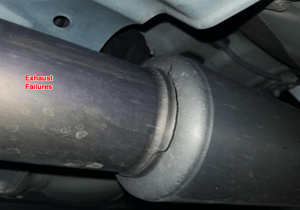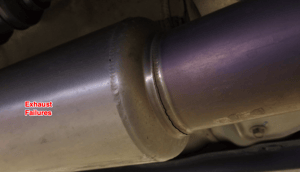 There comes a time when you have to decide how much race car you want in your street performance car.
There comes a time when you have to decide how much race car you want in your street performance car.
You can jump into a street car that has been parked overnight, start it up, and drive away. A real race car is going to need at least a few minutes of "pre-flight checks" before you can drive off.
- A race car needs as much power and as little weight as possible.
- A street car doesn't have a set of rules with upper limits on power and minimum weight requirements it needs to adhere to.
For every upgrade you purchase, you will have to decide what compromises you want to make. A fast street car is not a race car, it may have some ‘fast’ bits on it, but the two are very different because of those compromises you make.
An exhaust system is one of the first modifications many enthusiasts perform on their vehicle. While they can increase power output, they mainly change how your car sounds. The louder, the better, right? Not always the case. Do your homework.
Depending on the popularity of your vehicle, there may be a few to a few hundred different exhaust systems to choose from. The prices will range from a few hundred dollars to a few thousand.
You'll find these in four types of materials; Aluminized Steel, Stainless Steel, Aluminum, and Titanium.
Aluminized Steel is the most common and cheapest. It's great for your beater minivan or sedan, but it's heavy, ugly, and doesn't last very long, especially when you start making more power (that creates more heat).
- This is what most stock exhaust systems are made of.
Aluminum is very light. It also has a melting point that is lower than the exhaust gasses coming out of most motors. When properly used, it can make a great exhaust system. But it is often misapplied and ends up melting while in use.
Stainless Steel is the go-to material for a performance exhaust system. It is easy to work with, has a high melting point, and is resistant to rust and corrosion.
- A quality custom stainless system will last the lifetime of the vehicle.
Titanium is one of those super materials you've always heard of. It's super strong yet light. Spaceships are made out of it or something like that.  Being a cutting edge technology material, titanium is really expensive. But in recent years, demand has gone up and prices have come down. You can now purchase a titanium version of your favorite exhaust for only a few hundred dollars more.
Being a cutting edge technology material, titanium is really expensive. But in recent years, demand has gone up and prices have come down. You can now purchase a titanium version of your favorite exhaust for only a few hundred dollars more.
But is the increased cost worth it?
First, you have to make sure the entire exhaust system is made out of titanium. It is extremely common for only the last few inches to be titanium This is how they get the pretty blue colors on the exhaust tips. One way to tell if only the tips are titanium is that they will be riveted or bolted to the rest of the piping.
Titanium and stainless steel do not weld together well. The only benefit of a system with titanium only in the tips is all about the look.
- A full titanium exhaust will be significantly lighter than it's stainless steel twin by as much as 28lbs or more.
This is a significant weight savings that racers would kill for. Instead of weapons, they pull out their wallets and whomever carries the biggest pocket may have the lightest exhaust system. At that level, speed costs money, how fast do you want to go?
But, about that street car race car thing...
One little known fact about titanium is that it can react with the atmosphere at as low as 600 degrees F. And by react, I mean rust. Titanium rust appears as a white powder. It does not build up and flake like iron rust, so it's not as noticeable.
Guess what gets hotter than 600 degrees? Your exhaust.
It can get way hotter, almost 2000 degrees up near the engine. Because of this, I have seen several titanium exhaust systems develop cracks on and near welds. I don't think these systems will hold up for more than 2 or 3 years... and this is in the dry high plains of Colorado where we don't use salt on the roads.
Once a titanium parts have failed like this, it is extremely difficult to repair. In many instances, it's cheaper to buy a replacement section of the system rather than repair a failed weld.
So when you want real race car, you pay more for less. Less weight and less usable life.
- Stick with stainless steel for your street performance exhaust.



